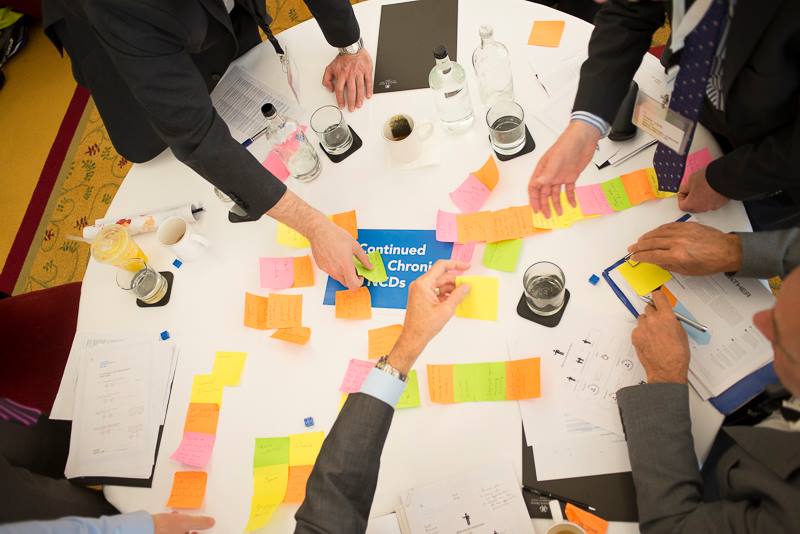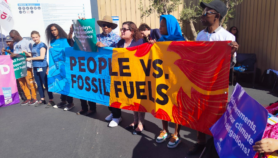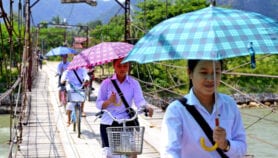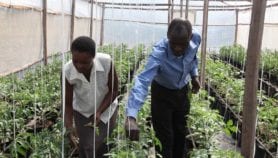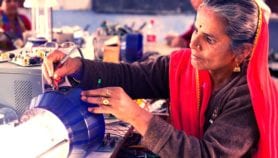By: Kaz Janowski
Send to a friend
The details you provide on this page will not be used to send unsolicited email, and will not be sold to a 3rd party. See privacy policy.
I have become aware of a growing weariness with the pessimistic narratives around climate change, migration and other global environmental issues and events. At an April workshop in Copenhagen on media messages about climate change, it was suggested that the media’s fondness for apocalyptic visions around this threat have partly led to public apathy and inaction.
In August, I was invited to join a ‘global opportunity panel’ in London jointly hosted by Danish think-tank the Monday Morning Global Institute and DNV GL, a company that provides expertise on technical standards and risks in relation to ships and offshore structures.
My letter of invitation said the panel was part of a wider initiative that, over the past 18 months, has examined the question: what does a safe and sustainable future look like? Exploring this question has involved various panels examining a range of themes and issues, including transformative technologies, climate change adaptation, electrification and — in keeping with DNV GL’s maritime insurance background — the ‘future ship’.
Five risk scenarios
The London workshop was one of eight similar sessions run by DNV GL in Abu Dhabi, Johannesburg, Mumbai, Oslo, San Francisco, Sao Paulo and Shanghai.
As the event opened, the panellists were presented with five global risk scenarios: uncontrolled city growth, lack of fresh water, extreme weather, continued fossil fuel lock-in and rising cases of non-communicable diseases (NCDs). Each of these risks is of significant interest to the risk management sector — and to governments and citizens round the world.
We were told that our task was to transform these risks into opportunities and that our contributions would find their way into the 2014 Global Opportunity Report that DNV GL co-produces.
The organisers made it clear that they were not talking about identifying financial opportunities but about identifying ways in which the private sector — with its networks, resources and creativity — could be central to addressing global efforts to meet the challenges these risks pose.
The mechanics of the workshop were quite straightforward: the panellists, consisting of around 30 people from academia, business, civil society, the media and NGOs, started off by examining each risk and noting down how we thought it might be transformed into an opportunity.
We proceeded to write our ideas on sticky note paper and fix them around each risk. We were then invited to choose the risks that interested us the most, and to brainstorm what came to mind. Each participant then had the chance to explore two risks in detail, and to suggest as ways as possible of turning those initial ideas into opportunities.
Finally, we voted on the opportunities we found most compelling, by asking four questions: does the idea address the risk that inspired it? Will the idea contribute to a more sustainable society? Does the idea have potential to create widespread social change? And does the idea require collaboration between multiple stakeholders to reach its full potential?
A disease of prosperity
In London, the opportunities around NCD cases emerged with the most votes. And the most popular of the opportunities was reducing the consumption of an apparently innocuous substance, but one which nevertheless causes diabetes, heart disease and other serious conditions. A ‘war on sugar’ was proposed.
Although this emphasis on sugar initially seemed a little strange, I remembered something that Chris Whitty, chief scientific advisor at the UK Department for International Development (DFID), said at the David Dickson memorial lecture in July. He made a bold prediction: that almost every country in which DFID works will become richer. With greater wealth will come higher sugar consumption, and with this more of the diseases it causes. Thus the risk grows and, in the terms considered at the panel, so does the opportunity to address it.
“Perhaps policymakers, governments and citizens are more likely to respond to the need to tackle risks if they are framed as opportunities.”
Kaz Janowski
What was attractive to the panellists about the opportunity to focus on sugar was that it could be packaged in a simple message with a set of simple actions. Suggestions included asking companies reduce sugar levels in their products, lobbying for governments to enforce this, and pushing for greater transparency about products’ sugar content.
It was felt that these actions meant that the risk could be addressed squarely. In short, reducing the prevalence of NCDs by declaring an all-out war on sugar, unlike some of the other opportunities suggested for the other risks, would be achievable.
Four highly populated countries were identified as potential leaders in taking up the opportunity of reducing global sugar consumption: China, India, Nigeria and the United States. And they could do this with the help of three organisations: WHO, financial firm Oxford Asset Management and development organisation Amref Health Africa.
All of us on the panel enjoyed the chance to take a positive slant on the gloomy topics aired as risks. Nevertheless, I have to admit that the event left me thinking that describing ways of tackling risks as opportunities is mostly sleight of language.
On the other hand, perhaps this is exactly what’s needed to encourage positive thinking about climate change and other major challenges. Perhaps policymakers, governments and citizens are more likely to respond to the need to tackle risks if they are framed as opportunities — just as the panellists took up the invitation to think in those terms. I’d like to encourage you as SciDev.Net readers to offer your views on the value of looking at global risks as opportunities.
Kaz Janowski is editor at SciDev.Net


